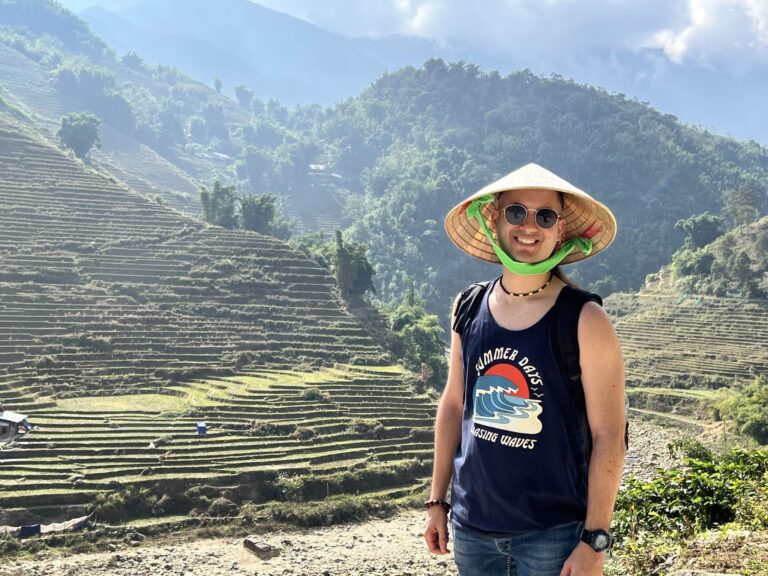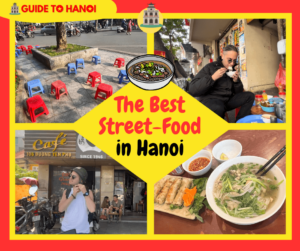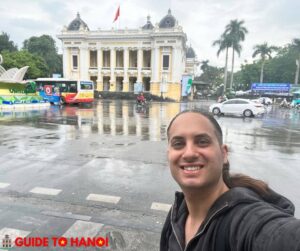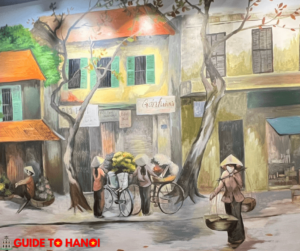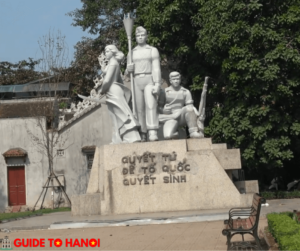Hanoi, the bustling capital city, holds a unique blend of tradition and modernity, and understanding the local language landscape is critical to navigating its vibrant streets.
In this guide, we’ll explore the extent to which English is spoken in Hanoi, the contexts in which you’re likely to encounter it and provide valuable insights to help you communicate effectively during your visit to this captivating city.
Whether you’re a seasoned traveler or a first-time visitor, this guide will equip you with the knowledge you need to connect with the people and culture of Hanoi.
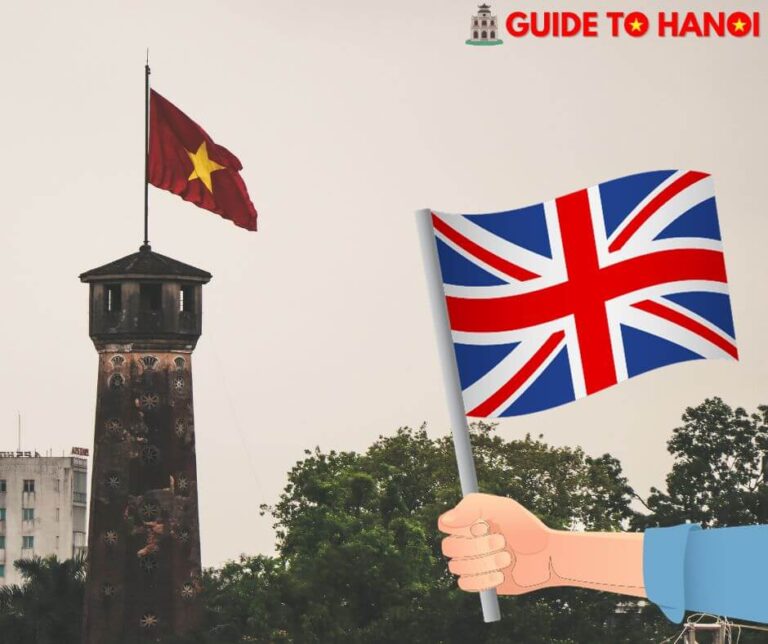
So, do they speak English in Hanoi?
Yes, English is spoken and understood to varying degrees in Hanoi, the capital city of Vietnam.
While Vietnamese is the official language, and most of the population primarily speaks Vietnamese, you can find people who speak English in Hanoi, particularly in the tourism and business sectors.
Many younger Vietnamese people, especially those in urban areas, are learning English as part of their education, commonly taught in schools.
You’re more likely to encounter English speakers in areas with a higher concentration of tourists, like the Old Quarter of Hanoi.
However, the level of English proficiency can vary widely among individuals.
You might encounter fewer English speakers in more remote or less touristy areas.
It can be helpful to learn some basic Vietnamese phrases or carry a translation app to assist with communication if you plan to visit Hanoi or other parts of Vietnam.
Is English commonly spoken in Vietnam?
English is becoming increasingly common in Vietnam, particularly in urban areas and among younger generations.
While Vietnamese is the official language of Vietnam, English is taught in schools and is considered an important second language. Here are some key points to consider:
Education
English is a mandatory subject in Vietnamese schools, starting from primary education.
Many students continue to learn and use English throughout their academic careers. This means that younger Vietnamese generations often have at least a basic understanding of English.
Tourism
In popular tourist destinations like Hanoi, Ho Chi Minh City, Da Nang, and other major cities, you’ll find that many people working in the tourism and hospitality industry have a good command of English.
This is because English is essential for communication with international visitors.
Business and Trade
English is also essential in the business world. Many international companies and organizations operate in Vietnam, and English is often used as the standard language for business transactions and communication.
Expatriate Communities
English is commonly spoken in areas with a significant expatriate community, such as Ho Chi Minh City.
You can find English-language services, schools, and various English-speaking social groups in these areas.
Rural Areas
In more rural and less touristy areas, English proficiency may be lower.
However, even in these areas, you may still encounter some individuals who speak basic English, especially among younger people who have learned it in school.
It’s important to note that the level of English proficiency can vary widely among individuals. While many people in Vietnam can understand and communicate in English to some extent, fluency levels may differ.
Learning a few basic Vietnamese phrases can be helpful for more effective communication, especially in non-urban areas.
Can you survive in Vietnam with English?
You can generally survive in Vietnam with English, especially when visiting major cities like Hanoi, Ho Chi Minh City, Da Nang, or popular tourist destinations.
Many people in these areas, particularly those in the tourism and hospitality industries, have at least a basic understanding of English. Here’s how you can manage with English:
Tourist Areas
You will find that English is commonly spoken and understood in popular tourist areas. Most signs, menus, and tourist information are in Vietnamese and English.
Hotels and Restaurants
Staff at hotels, restaurants, and cafes often have a good command of English. You should have no trouble ordering food, booking accommodations, or getting assistance.
Tourist Attractions
You’ll often find English-speaking guides and information in English when visiting tourist attractions.
Transportation
In larger cities, transportation options like taxis and ride-sharing services often have drivers who understand basic English. You can also use translation apps to communicate your destination.
English-Speaking Communities
English-speaking services and social groups can benefit areas with a significant expatriate community.
However, it’s essential to remember that English proficiency may be limited outside these contexts. In more remote or rural areas, you may encounter fewer English speakers.
Learning a few basic Vietnamese phrases can be valuable for effective communication and respecting the local culture.
Many Vietnamese people appreciate it when visitors try to speak some Vietnamese, even if it’s just basic greetings and phrases.
Overall, while it’s possible to survive in Vietnam with English, having some knowledge of the local language can enhance your experience and interactions with the locals.
Do you need to speak English to visit Vietnam?
No, you do not need to speak English to visit Vietnam. Many travelers worldwide visit Vietnam without speaking English and can get by and enjoy their trips.
While English is becoming more commonly spoken, especially in tourist areas and larger cities, it is not required to visit Vietnam. Here are some considerations:
Tourist Services
In popular tourist destinations like Hanoi, Ho Chi Minh City, Da Nang, and areas with many tourists, you will find that many service providers in hotels, restaurants, and shops can communicate in basic English.
Translation Tools
You can use translation apps and devices to help with communication. These tools can translate spoken or written language in real-time, making it easier to get around and communicate your needs.
Local Language
Learning a few basic Vietnamese phrases and expressions can be helpful and appreciated by the locals. Simple greetings and polite expressions can go a long way in making connections and showing respect for the culture.
Tourist Information
You’ll find information, maps, and guides available in English at many tourist information centers.
Group Tours
Joining group tours with English-speaking guides can be a convenient way to explore the country and learn about its culture.
In essence, while English can be beneficial and make your travel experience more comfortable in Vietnam, it is not a requirement. Many visitors, even those who don’t speak English, have enjoyable and successful trips to Vietnam by being prepared with basic phrases, using translation tools, and taking advantage of the English-speaking services available in tourist areas.
In conclusion
While English is commonly spoken and understood in many parts of Vietnam, it’s unnecessary to have fluency in the language to visit the country.
With some basic knowledge of Vietnamese phrases and the help of translation tools, you can navigate through Vietnam and have a fulfilling travel experience.
However, learning English or using available English-speaking services can enhance your interactions with locals.
Taking advantage of English-speaking services in tourist areas can also be beneficial.
However, don’t be discouraged if you don’t speak English or Vietnamese fluently; many travelers have successfully and happily traveled to Vietnam without speaking either language.
So pack your bags, brush up on some basic Vietnamese phrases, and get ready to explore the beautiful country of Vietnam! So why wait? Book your tickets now! Happy traveling! 😉


